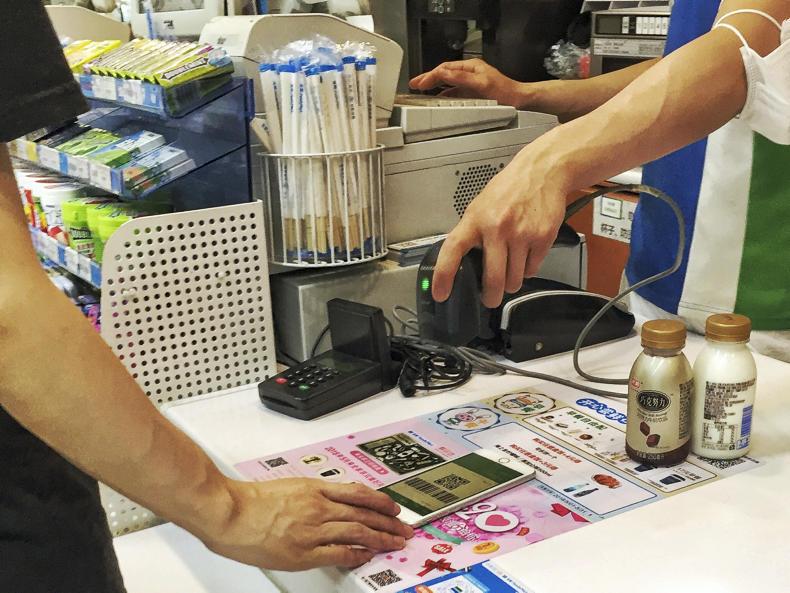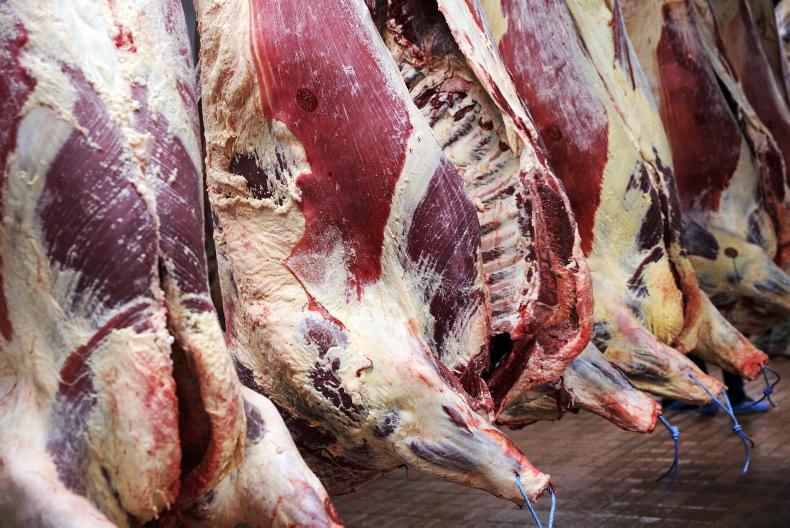The first leg of the Bord Bia trade mission to China led by Minister Michael Creed involved two days in Beijing, the capital, and was an opportunity to study the route to Chinese consumers and what they were looking for.
With the rise of Amazon in the United States and Europe as an online retailer selling a vast array of products, a major threat has been identified to traditional bricks and mortar retail models. The large supermarket organisations have been well aware of this and with varying success have attempted to develop an online business themselves.
In China, however, the era of online dominance in retail, particularly for the well-educated growing middle class group in society, has arrived. With the rapid economic development of China and growth of the middle class over the past 20 years, two features of western affluence – cash and access to personal computers – have largely been bypassed. Young successful Chinese consumers don’t use cash nor even cards – they use a fully integrated mobile app that allows them do all banking needs through their smartphone, which services their other computing needs as well. Irish success
What has this got to do with Irish farmers? The success of selling Irish beef in China will require the industry to fit into this high technology and rapidly developing food service and retail model. This is very different from the Irish or UK retail model for beef which is built around convenience packaging and presentation on the supermarket shelf.
With online sales growth far outpacing the traditional retail supermarket model, the developing Chinese model has a very different retail proposition. In fact, it is so pronounced now that the top online retailers are investing in traditional supermarkets to assist their distribution network as well as cater for the tastes of the traditional shopper.
JD.com
JD.com is the second-largest online retailer in China which currently has 24% of the market and rising year on year. Inside its vast headquarters, where 1,500 people are employed, robotics are used to pick products in the warehouse. In terms of delivery, 95% of orders are delivered within 24 hours, with 57% being delivered within six hours of receiving the order.
Unlike the market leader, Alibaba, JD does not outsource delivery and distribution. To this end, they have 515 warehouses across China and have been investing in traditional retailers such as Walmart and Yonghui, a Chinese supermarket chain. This investment in traditional retailing allows the skills used by JD in its online business be applied to drive efficiency across the business.
One example shown to the Irish Farmers Journal was the 7FRESH store, the first of two major premium fresh food stores trading in Beijing. This is a high-tech model where a consumer can pick up some products and a screen above displays the relevant information including a satisfaction rating taken from the company’s database of its consumers, which extends to almost 302m active users.
This store provides a delivery service within half an hour to customers within 3km and at no charge for customers spending over the equivalent of €13 per purchase. The skills and expertise developed for the online business are successfully transferred and applied to the more traditional store format as well. The sector is expected to grow from $41bn (2015) to a predicted $178bn in 2020.
WeChat
While western social media networks are banned in China, local internet companies have developed their own alternatives and one app is emerging as a game-changer. WeChat started as an instant messaging service but now integrates countless additional features and allows businesses including food companies interact directly with customers.
Many urban consumers now choose a restaurant with their friends, place their order, pay for it, split the bill and share a review of their meal – all without leaving the WeChat app on their mobile. The same applies to grocery shopping.
The service has 1bn users, nearly all Chinese, who have provided photo ID and credit card details – all under tight control from the Government. They check it so often that WeChat now has more traffic than Facebook, according to Cyril Drouin of the advertising agency Publicis in China. Advertising and using influencers on WeChat is a key part of any marketing campaign to establish a food brand in the country, Drouin said, but also carries very high costs.
The first leg of the Bord Bia trade mission to China led by Minister Michael Creed involved two days in Beijing, the capital, and was an opportunity to study the route to Chinese consumers and what they were looking for.
With the rise of Amazon in the United States and Europe as an online retailer selling a vast array of products, a major threat has been identified to traditional bricks and mortar retail models. The large supermarket organisations have been well aware of this and with varying success have attempted to develop an online business themselves.
In China, however, the era of online dominance in retail, particularly for the well-educated growing middle class group in society, has arrived. With the rapid economic development of China and growth of the middle class over the past 20 years, two features of western affluence – cash and access to personal computers – have largely been bypassed. Young successful Chinese consumers don’t use cash nor even cards – they use a fully integrated mobile app that allows them do all banking needs through their smartphone, which services their other computing needs as well. Irish success
What has this got to do with Irish farmers? The success of selling Irish beef in China will require the industry to fit into this high technology and rapidly developing food service and retail model. This is very different from the Irish or UK retail model for beef which is built around convenience packaging and presentation on the supermarket shelf.
With online sales growth far outpacing the traditional retail supermarket model, the developing Chinese model has a very different retail proposition. In fact, it is so pronounced now that the top online retailers are investing in traditional supermarkets to assist their distribution network as well as cater for the tastes of the traditional shopper.
JD.com
JD.com is the second-largest online retailer in China which currently has 24% of the market and rising year on year. Inside its vast headquarters, where 1,500 people are employed, robotics are used to pick products in the warehouse. In terms of delivery, 95% of orders are delivered within 24 hours, with 57% being delivered within six hours of receiving the order.
Unlike the market leader, Alibaba, JD does not outsource delivery and distribution. To this end, they have 515 warehouses across China and have been investing in traditional retailers such as Walmart and Yonghui, a Chinese supermarket chain. This investment in traditional retailing allows the skills used by JD in its online business be applied to drive efficiency across the business.
One example shown to the Irish Farmers Journal was the 7FRESH store, the first of two major premium fresh food stores trading in Beijing. This is a high-tech model where a consumer can pick up some products and a screen above displays the relevant information including a satisfaction rating taken from the company’s database of its consumers, which extends to almost 302m active users.
This store provides a delivery service within half an hour to customers within 3km and at no charge for customers spending over the equivalent of €13 per purchase. The skills and expertise developed for the online business are successfully transferred and applied to the more traditional store format as well. The sector is expected to grow from $41bn (2015) to a predicted $178bn in 2020.
WeChat
While western social media networks are banned in China, local internet companies have developed their own alternatives and one app is emerging as a game-changer. WeChat started as an instant messaging service but now integrates countless additional features and allows businesses including food companies interact directly with customers.
Many urban consumers now choose a restaurant with their friends, place their order, pay for it, split the bill and share a review of their meal – all without leaving the WeChat app on their mobile. The same applies to grocery shopping.
The service has 1bn users, nearly all Chinese, who have provided photo ID and credit card details – all under tight control from the Government. They check it so often that WeChat now has more traffic than Facebook, according to Cyril Drouin of the advertising agency Publicis in China. Advertising and using influencers on WeChat is a key part of any marketing campaign to establish a food brand in the country, Drouin said, but also carries very high costs.










SHARING OPTIONS